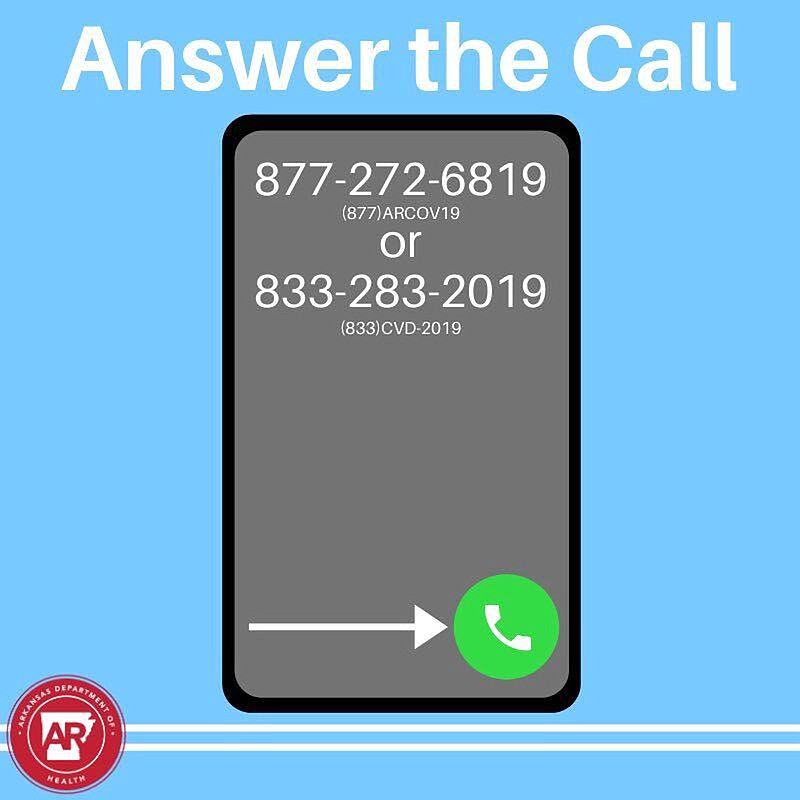While spam calls are a common and annoying occurrence, Arkansas officials are urging people to think twice before declining an unknown number because it could be a call from a COVID-19 contact tracer.
"Contact tracing is a critical tool in our fight against COVID-19. If you get a call from 877-272-6819 or 833-283-2019, be sure to pick up the phone, because you may have been exposed to COVID-19," Arkansas Gov. Asa Hutchinson tweeted on Aug. 12.
"We have had difficulty contacting people; of course there's so many robocalls nowadays that a lot of people won't answer the phone if they don't recognize the number," said Dr. Jennifer Dillaha, the Arkansas Department of Health's state epidemiologist, who oversees the state's contact tracing operation.
"People in Arkansas are (starting to) consider the possibility they could have been exposed and perhaps, or at least we're hoping, they're more likely to answer a call that they don't recognize."
According to ADH's website, there are some ways to verify a call from a contact tracer is legitimate.
"The case investigator and contact tracer will never ask for your Social Security number, bank account number or credit card," according to the website. "If the caller ever discusses money, that's a sign that it is not a legitimate Department of Health investigator. If you want to verify that you have been contacted by a Health Department case investigator or contact tracer, you may call 800-803-7847."
The website notes if you haven't spoken to a contact tracer on the phone to enroll in the automated SARA Alert program for reporting symptoms, beware of text messages asking you to click on a link. A tracer will not send you any links to click before speaking with you on the phone.
Suspected spam callers posing as officials can be reported to the Arkansas attorney general's office at http://www.ArkansasAG.gov, via email at [email protected] or via phone call at 800-482-8982. Be sure to note the time of the call and the number it came from when reporting it.
Dillaha said ADH has contracted two companies to assist in contact tracing: General Dynamics Information Technology and the Arkansas Foundation for Medical Care. The department has also partnered with the College of Public Health at UAMS for contact tracing purposes.
"We will need to do contact tracing as long as the pandemic is still a pandemic, and I imagine that will be at least another year," she said.
Prior to the pandemic, Dillaha said ADH's Outbreak Response conducted case investigations and contact tracing for reported infectious diseases. Now that contact tracing must be done on a much larger scale, ADH and its partners are conducting it by gathering contact information from the public prior to entering some facilities on a sign-in sheet.
"In the event that there's a case identified (at that facility) then we would know who was there and potentially exposed," she said. "Then that person would be a potential contact and if it were a true case and it were what we call close contact, ... within 6 feet for 15 minutes or more, then that close contact would then be instructed to quarantine and get tested."
When someone has been exposed to COVID-19, Dillaha said, they should wait five to six days after the initial exposure before getting tested, but should immediately quarantine for 14 days after the time of exposure.
For more information, or to apply to be a contact tracer, visit https://www.healthy.arkansas.gov/programs-services/topics/covid-19-contact-tracing.
